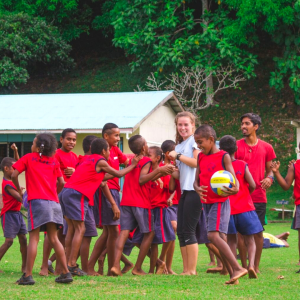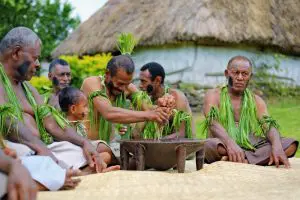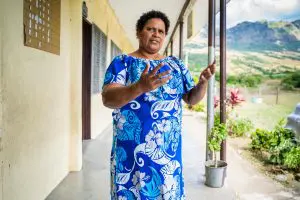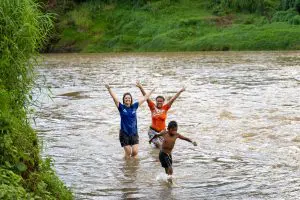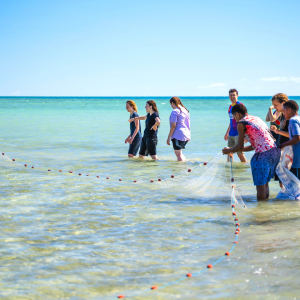
Fancy trying something new this year? This blog by virtual intern Dan Mikhaylov a student at London School of Economics, gives an valuable insight into the nature of our virtual program, Fiji’s culture and the positive impact our interns projects have for our partners in Fiji!
Vinaka Dan for such a well written blog about your experience with Think Pacific and your Fijian partner organisation The Fusion Hub.
Fiji… A Mysterious Pacific Island
For the vast majority of Britons, encounters with Fiji hardly exceed perusing a school atlas or purchasing the peculiarly titled Fiji Water at your local grocery store. Geographically distant from the UK and frequently overlooked in the mainstream media, this Pacific island nation nonetheless merits our attention.
Whether it is the locals’ communitarianism, known as the kerekere, or their resilient spirit that saw Fiji persevere through deep-seated ethnic tensions and baneful natural catastrophes, the country boasts an extraordinary smorgasbord of cultural idiosyncrasies, mesmerising sights, and impactful stories.
It was precisely to broaden my horizons and fathom the intricacies of the South Pacific that I chose to partake in Think Pacific’s virtual internship programme this summer. Organised by an award-winning British non-profit organisation that has customarily been sending volunteer expeditions to Fiji, this programme connects UK university students with representatives of the nation’s government institutions, private sector, and NGOs for either four or eight weeks.
Diving Into International Development
My internship consisted of two important stages. Initially, participants were to familiarise themselves with Fiji and learn about, among other things, sustainable development, marketing, and sports management in the regional context through the dedicated learning modules. There are plentiful options to cull from, and I completed the international development, business, marketing, and NGO management ones, for those meshed well with my interest in social entrepreneurship and policy-making.
As part of my studies, I read scholarly articles and analytical reports and watched a deftly assembled collection of educational videos, lectures, and testimonies from Fijians.
My personal highlight was realising the importance of SWOT assessments and metrics to evaluate impact for NGOs. I was equally intrigued by the story of Lagi Toribau. Besides combating overfishing in the Pacific Ocean, this Fijian activist has been proposing that Fiji imagine itself not as a small island country, but as a maritime giant, whose wealth resides not on land, but beneath the oceanic surface.

Culture & Customs
It was similarly interesting to acquaint myself with how Fijians think by examining their history and memorising basic phrases in the local language. By the end of the programme, I could easily introduce myself in Fijian and tell the difference between a yavusa (tribe) and a mataqali (clan).
As 46% of Fijians inhabit rural areas, village life retains considerable influence over how people behave and treat each other. For instance, the meke, a traditional dance narrating historical and mythological stories, is still performed at ceremonies today and the Think Pacific team has even organised an online meke class for us to try it ourselves. Likewise, Fijians have their own national drink, called yaqona. While it was traditionally reserved for special ceremonies, its anaesthetic and euphoriant properties made its consumption widespread for recreational purposes, with yaqona exported from Fiji to Australia, New Zealand, and the United States in large quantities.

Creating A Social Action Project
I spent the second phase of my eight-week internship working on a project with one of Think Pacific’s numerous partner firms and organisations. Selecting the action project was a difficult task, and I struggled to pick the right one for me from the myriad of interesting options. After all, who would not want to present a report to the Fijian Ministry of Health and Medical Services? Or formulate an outreach campaign for a local plastic recycling group, called Precious Plastic Fiji?
After considerable chopping and changing, I went for Fusion Hub, a registered social enterprise focusing on the manufacturing and sale of upcycled waste products. The firm’s commitment to solving environmental issues resonated with my earlier work as an advocate of free-market solutions to anthropogenic climate change, and its impact was recognised by the Commonwealth Youth Awards.
The coronavirus and the concomitant global economic downturn reduced Fusion Hub’s sales and brought its upcycling operations to a halt, and my task involved creating one-year marketing and strategic plans that would reflect the firm’s change in priorities from upcycling to zero-waste shopping. At the same time as I was preparing them, the company was training staff and procuring new goods, such as salad bowls made from coconut husks, to launch Fiji’s inaugural zero-waste shopping space in the town of Lautoka. In those documents, I performed competitor analysis and suggested that Fusion Hub diversified content to facilitate social media outreach and looked for connections with local schools and religious communities to expand customer base.

Falling in Love With Fiji…Virtually
I wholeheartedly recommend this internship experience. Not only does it provide a rare opportunity to explore Fijian traditions, history, and economic development, but it also allows you to expand your skill set and attempt projects without requiring much previous experience. This was my first time working on marketing and business strategies, but I was able to learn the relevant skills and put them into practice immediately. It was also rewarding to know that my action project would make an impact and help Fusion Hub with its future endeavours. Likewise, Think Pacific organised weekly fun events, skills sessions, and external speaker series featuring public and private sector representatives to support us along the journey.
This virtual internship experience taught me the fundamentals of business operations and instilled in me a sincere passion for all things Fiji, whence I ought to thank the Think Pacific and my mentor – Cam Watson – for making this opportunity available to students and helping me fall in love with Fiji. Hopefully, I would one-day have the chance to travel there and complete my cultural immersion.



